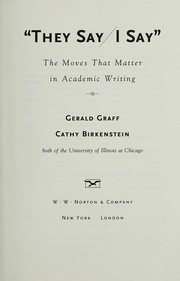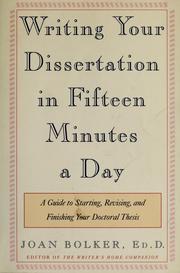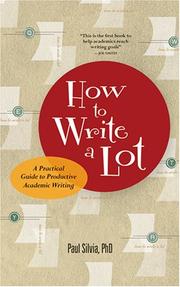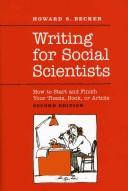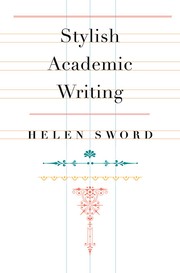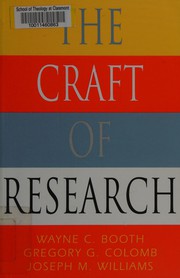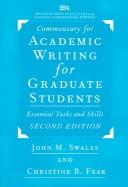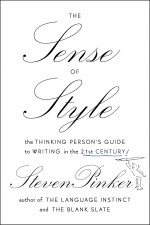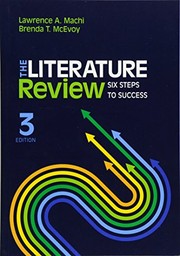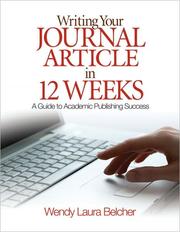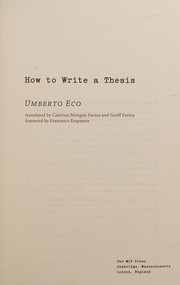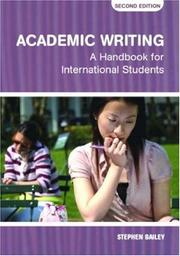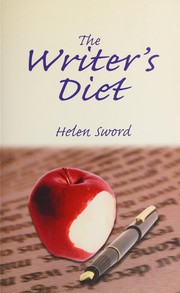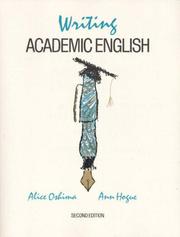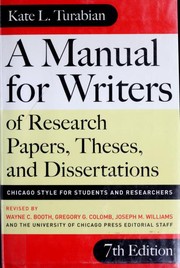If you’re a student, researcher, or academic professional looking to enhance your writing skills, you’ll want to explore the world of academic writing through these 20 best books. Whether you’re struggling with structuring your essays, citing sources properly, or simply finding your academic voice, there’s a book on academic writing out there for you. From comprehensive guides to practical handbooks, these academic writing books cover everything from grammar and style to research and argumentation. Let’s dive into the top 20 books that will help you become a more effective and confident academic writer.
Contents
- 1 20 Best Academic Writing Books
- 2 They Say / I Say: The Moves That Matter in Academic Writing
- 3 Writing Your Dissertation in Fifteen Minutes a Day
- 4 How to Write a Lot: A Practical Guide to Productive Academic Writing
- 5 The Elements of Style
- 6 Writing for Social Scientists: How to Start and Finish Your Thesis, Book, or Article
- 7 Stylish Academic Writing
- 8 The Craft of Research
- 9 Writing Science: How to Write Papers That Get Cited and Proposals That Get Funded
- 10 Academic Writing for Graduate Students: Essential Tasks and Skills
- 11 The Sense of Style: The Thinking Person’s Guide to Writing in the 21st Century
- 12 The Literature Review: Six Steps to Success
- 13 Writing Your Journal Article in Twelve Weeks: A Guide to Academic Publishing Success
- 14 How to Write a Thesis
- 15 Academic Writing: A Handbook for International Students
- 16 The Chicago Manual of Style
- 17 The Academic Writer’s Toolkit: A User’s Manual
- 18 The Writer’s Diet: A Guide to Fit Prose
- 19 They Say / I Say: The Moves That Matter in Academic Writing
- 20 Writing Academic English
- 21 A Manual for Writers of Research Papers, Theses, and Dissertations
- 22 Final Thoughts on Best Academic Writing Books
- 23
20 Best Academic Writing Books
They Say / I Say: The Moves That Matter in Academic Writing
by Gerald Graff and Cathy Birkenstein
They Say / I Say: The Moves That Matter in Academic Writing is a renowned book on academic writing. Authored by Gerald Graff and Cathy Birkenstein, this book offers a comprehensive guide for students and scholars to enhance their writing skills in the academic context. The authors emphasize the importance of engaging in scholarly conversations by mastering the essential ‘moves’ in academic writing.
They Say / I Say is not just another book about academic writing. It stands out for its practical approach, providing templates and examples to help readers effectively incorporate their own ideas into the ongoing academic discourse. By focusing on the ‘they say/I say’ framework, the book empowers writers to craft compelling arguments and engage with existing scholarship in a meaningful way.
Whether you’re a novice or an experienced academic writer, this academic writing book is a valuable resource for honing your skills and making your voice heard in the academic community. With its clear and accessible guidance, They Say / I Say is an indispensable tool for anyone looking to elevate their academic writing prowess.
Writing Your Dissertation in Fifteen Minutes a Day
by Joan Bolker
Writing Your Dissertation in Fifteen Minutes a Day by Joan Bolker is a valuable resource for graduate students who are struggling to make progress on their dissertations. This book on academic writing provides practical advice and strategies for overcoming writer’s block, managing time effectively, and staying motivated throughout the dissertation writing process.
Bolker’s approach is both encouraging and realistic, as she acknowledges the challenges of academic writing while also offering practical solutions for making steady progress. The book about academic writing emphasizes the importance of establishing a regular writing routine and breaking the dissertation process into manageable tasks.
Through her own experience as a writing coach, Bolker shares actionable tips and exercises to help readers develop a writing habit and make consistent progress towards completing their dissertations. Whether you’re a graduate student facing the daunting task of writing a dissertation or a researcher looking for guidance on academic writing, this academic writing book is a valuable resource that can help you overcome obstacles and achieve your writing goals.
How to Write a Lot: A Practical Guide to Productive Academic Writing
by Paul J. Silvia
How to Write a Lot: A Practical Guide to Productive Academic Writing by Paul J. Silvia is a must-read for anyone struggling with the daunting task of writing in the academic world. This insightful book on academic writing offers practical advice and strategies to help writers overcome common obstacles and increase their productivity.
Silvia provides straightforward tips on how to establish a regular writing schedule, set realistic goals, and manage time effectively. He also emphasizes the importance of creating a supportive writing environment and staying motivated throughout the writing process. Additionally, the book about academic writing addresses common writing challenges, such as writer’s block and perfectionism, and offers practical solutions to overcome them.
Whether you’re a seasoned academic writer or just starting out, this academic writing book is filled with valuable insights and actionable advice that will empower you to become a more prolific and successful writer. With its no-nonsense approach and helpful tips, How to Write a Lot is an indispensable resource for anyone looking to improve their writing productivity.
The Elements of Style
by William Strunk Jr. and E.B. White
The Elements of Style is a classic book on academic writing that has been a trusted guide for writers for over a century. Originally written by William Strunk Jr. and later revised by E.B. White, this timeless manual offers invaluable advice on grammar, punctuation, style, and composition. It is a concise and practical resource that provides clear and straightforward rules for effective communication, making it an essential tool for anyone who wants to improve their writing skills.
Whether you are a student, a professional writer, or simply someone who wants to enhance their communication abilities, this academic writing book is a must-have. Its timeless wisdom and practical tips make it a valuable companion for anyone striving to communicate with clarity and precision. The Elements of Style is not just a book about academic writing, but a timeless guide that continues to inspire and educate writers of all levels.
Writing for Social Scientists: How to Start and Finish Your Thesis, Book, or Article
by Howard S. Becker
Writing for Social Scientists: How to Start and Finish Your Thesis, Book, or Article by Howard S. Becker is a valuable resource for anyone looking to enhance their academic writing skills. This insightful book on academic writing provides practical advice and guidance for social scientists who are embarking on the process of writing a thesis, book, or article. Becker draws from his own experiences as a sociologist and writer to offer helpful tips on overcoming common obstacles, managing time effectively, and navigating the complexities of the writing process.
Through engaging anecdotes and straightforward language, this academic writing book demystifies the challenges of scholarly writing and empowers readers to develop their own unique writing style. Whether you are a graduate student, professor, or researcher, Becker’s book about academic writing will inspire you to approach your writing projects with confidence and creativity. Writing for Social Scientists is a must-read for anyone seeking to improve their academic writing skills and produce high-quality work in the social sciences.
Stylish Academic Writing
by Helen Sword
Stylish Academic Writing by Helen Sword is a groundbreaking book on academic writing that challenges the conventional notions of dry, formulaic prose that often plagues scholarly work. Sword advocates for a more engaging and reader-friendly approach to academic writing, urging scholars to inject their work with creativity and style without sacrificing rigor and clarity.
The book about academic writing offers practical advice and useful strategies for crafting compelling and elegant prose, while also addressing the unique challenges and pressures of academic writing. Sword draws on a rich array of examples from diverse disciplines to illustrate her points, making the book a valuable resource for writers across the academic spectrum.
For anyone looking to enhance their scholarly communication skills and break free from the confines of traditional academic writing, this academic writing book is an indispensable guide. By embracing the principles outlined in Stylish Academic Writing, writers can elevate their work to new heights, reaching a wider audience and making a lasting impact in their fields.
The Craft of Research
by Wayne C. Booth, Gregory G. Colomb, and Joseph M. Williams
The Craft of Research by Wayne C. Booth, Gregory G. Colomb, and Joseph M. Williams is a comprehensive guide for anyone looking to master the art of scholarly writing. This influential book on academic writing provides students, researchers, and scholars with valuable insights and practical advice on how to conduct research, formulate arguments, and communicate effectively in written form. The authors emphasize the importance of critical thinking and meticulous attention to detail, offering a step-by-step approach to the research process that is both rigorous and accessible. Through clear and engaging prose, the book about academic writing provides readers with the tools they need to navigate the complexities of academic writing with confidence and skill. Whether you are a beginner or an experienced writer, this academic writing book is an indispensable resource for honing your research and writing abilities.
Writing Science: How to Write Papers That Get Cited and Proposals That Get Funded
by Joshua Schimel
Writing Science: How to Write Papers That Get Cited and Proposals That Get Funded by Joshua Schimel is an invaluable resource for anyone looking to improve their academic writing skills. This comprehensive book on academic writing provides practical guidance and expert advice on how to effectively communicate scientific research in written form. Schimel draws on his extensive experience as a scientist and writing instructor to offer strategies for crafting clear, compelling, and impactful papers and proposals.
Readers will learn how to structure their writing, choose the right language and tone, and effectively communicate complex scientific concepts to a broad audience. The book about academic writing also delves into the nuances of crafting successful grant proposals, providing valuable insights into the funding process and how to maximize the chances of securing research funding.
Whether you’re a seasoned researcher or a graduate student just starting out, this academic writing book is a must-have resource for anyone looking to enhance their scientific writing skills and make a meaningful impact in the academic community.
Academic Writing for Graduate Students: Essential Tasks and Skills
by John M. Swales and Christine B. Feak
Looking for a comprehensive guide on academic writing? Look no further than “Academic Writing for Graduate Students: Essential Tasks and Skills” by John M. Swales and Christine B. Feak. This acclaimed book on academic writing is a must-have for graduate students and researchers who want to enhance their writing skills. It covers essential tasks and skills required for successful academic writing, including structuring an argument, incorporating research, and citing sources.
Readers will find practical examples, detailed explanations, and useful exercises to help them master the art of scholarly communication. Whether you’re working on a thesis, dissertation, or research paper, this book about academic writing provides invaluable guidance for navigating the complexities of academic writing. With its clear and accessible language, “Academic Writing for Graduate Students” is an indispensable resource for anyone looking to improve their academic writing prowess. Get your hands on this essential academic writing book and take your scholarly writing to the next level.
The Sense of Style: The Thinking Person’s Guide to Writing in the 21st Century
by Steven Pinker
The Sense of Style by Steven Pinker is a modern academic writing book that offers a refreshing take on the art of writing in the 21st century. Pinker, a renowned cognitive scientist, takes a thoughtful and engaging approach to guide readers through the intricacies of language and communication. With a focus on clarity, coherence, and style, Pinker provides valuable insights on how to craft compelling and effective writing. He emphasizes the importance of understanding the principles of good writing and offers practical advice on how to apply them in various contexts. Whether you’re a student, a professional, or simply a lover of language, this book about academic writing is sure to inspire and enlighten. With its blend of wit, wisdom, and practical guidance, The Sense of Style is a must-read for anyone seeking to improve their writing skills and communicate with clarity and impact.
The Literature Review: Six Steps to Success
by Lawrence A. Machi and Brenda T. McEvoy
The Literature Review: Six Steps to Success by Lawrence A. Machi and Brenda T. McEvoy is a comprehensive guide for anyone undertaking a literature review. This book on academic writing provides a clear and practical six-step approach to conducting a literature review, making it an invaluable resource for students, researchers, and academic writers alike. The authors emphasize the importance of understanding the purpose and significance of a literature review in academic research, and they provide actionable steps for effectively conducting and organizing the review.
Readers will find this book about academic writing to be a user-friendly and accessible resource, with helpful examples, checklists, and exercises to guide them through each step of the process. Whether you are new to academic writing or looking to improve your literature review skills, The Literature Review: Six Steps to Success offers valuable insights and strategies for conducting a thorough and effective literature review.
Writing Your Journal Article in Twelve Weeks: A Guide to Academic Publishing Success
by Wendy Laura Belcher
Writing Your Journal Article in Twelve Weeks: A Guide to Academic Publishing Success by Wendy Laura Belcher is a comprehensive and practical book on academic writing that provides a step-by-step guide for scholars looking to publish their research in academic journals. Belcher’s approach is structured as a twelve-week program, designed to help writers break down the daunting task of writing and revising an article into manageable and achievable goals.
This book about academic writing covers everything from selecting a journal and crafting a compelling argument to managing time and dealing with writer’s block. Belcher offers valuable advice on how to navigate the academic publishing process and provides useful strategies for improving writing skills. With its clear and encouraging tone, this academic writing book is an indispensable resource for graduate students, early-career researchers, and seasoned academics alike who are looking to enhance their writing and successfully publish their work in the scholarly community.
How to Write a Thesis
by Umberto Eco
How to Write a Thesis by Umberto Eco is a comprehensive and insightful book on academic writing, offering a step-by-step guide for students and scholars embarking on the daunting task of thesis writing. Eco, an esteemed Italian novelist and academic, draws on his own experience and expertise to provide practical advice and valuable tips for crafting a successful thesis.
The book about academic writing covers everything from choosing a topic and conducting research to structuring an argument and refining writing style. Eco emphasizes the importance of developing a clear and original thesis statement, and offers guidance on how to effectively support and defend it throughout the writing process.
With its engaging and accessible style, How to Write a Thesis demystifies the often daunting task of academic writing, making it an essential resource for anyone seeking to improve their writing skills and produce high-quality academic work. Whether you’re a seasoned scholar or a student just starting out, this academic writing book is sure to become an invaluable companion on your journey towards mastering the art of thesis writing.
Academic Writing: A Handbook for International Students
by Stephen Bailey
Academic Writing: A Handbook for International Students by Stephen Bailey is a comprehensive and indispensable resource for anyone looking to improve their scholarly writing skills. This book on academic writing provides practical guidance and valuable tips for non-native English speakers, making it an essential tool for international students and researchers.
With clear and concise explanations, Bailey covers various aspects of academic writing, including essay structure, critical thinking, referencing, and language use. The book about academic writing also offers practical exercises and examples to help readers apply the concepts and techniques discussed.
Whether you are a student, scholar, or professional seeking to enhance your academic writing abilities, this academic writing book is an invaluable asset. Bailey’s approachable style and insightful advice make Academic Writing: A Handbook for International Students a must-have for anyone looking to excel in their scholarly pursuits.
The Chicago Manual of Style
by The University of Chicago Press Editorial Staff
The Chicago Manual of Style, published by The University of Chicago Press Editorial Staff, is a fundamental resource for anyone involved in scholarly research and writing. This authoritative guide, often referred to as the “bible” for writers, editors, and publishers, provides comprehensive guidelines for crafting and formatting documents in a wide range of disciplines. Whether you are a student, educator, author, or professional, this indispensable book on academic writing offers clear and practical advice on grammar, punctuation, citation, and citation style. It also covers the proper presentation of tables, figures, and other visual elements, making it an essential tool for anyone striving to produce polished and professional academic writing. With its thorough and up-to-date information, this book about academic writing is a valuable companion for anyone seeking to communicate their ideas effectively and in accordance with the highest standards of scholarship.
The Academic Writer’s Toolkit: A User’s Manual
by Arthur Asa Berger
The Academic Writer’s Toolkit: A User’s Manual by Arthur Asa Berger is a comprehensive guide for anyone looking to improve their writing skills within the academic sphere. This book on academic writing provides practical tips and strategies for crafting clear, concise, and compelling academic papers. Berger offers invaluable advice on everything from brainstorming and organizing ideas to polishing prose and citing sources. The book about academic writing also covers the nuances of different types of academic writing, such as essays, research papers, and literature reviews, making it a useful resource for students and scholars across disciplines.
With its user-friendly approach and insightful examples, The Academic Writer’s Toolkit is an indispensable tool for anyone seeking to enhance their academic writing skills. Whether you’re a seasoned academic or just starting out, this academic writing book will help you navigate the often-challenging terrain of scholarly communication with confidence and proficiency.
The Writer’s Diet: A Guide to Fit Prose
by Helen Sword
The Writer’s Diet: A Guide to Fit Prose by Helen Sword is a must-have resource for anyone looking to improve their writing skills. This insightful book on academic writing offers practical tips and exercises to help writers trim the fat from their prose and create clear, engaging content. Sword provides a comprehensive overview of the five “food groups” of writing (verbs, prepositions, nouns, adjectives/adverbs, and waste words) and offers strategies for identifying and eliminating flabby writing.
Whether you’re a seasoned academic writer or just beginning to dip your toes into the world of scholarly communication, this book about academic writing is an invaluable tool for honing your craft. Sword’s accessible, no-nonsense approach makes The Writer’s Diet a must-read for anyone looking to improve their writing style and communicate their ideas more effectively. With its practical advice and engaging style, this academic writing book is sure to become a well-thumbed resource on the bookshelf of any writer looking to whip their prose into shape.
They Say / I Say: The Moves That Matter in Academic Writing
by Gerald Graff, Cathy Birkenstein
They Say / I Say: The Moves That Matter in Academic Writing by Gerald Graff and Cathy Birkenstein is a highly acclaimed book on academic writing that provides a practical guide for students and scholars to improve their writing skills. The book offers a unique approach to academic writing, focusing on the importance of engaging in scholarly conversations by responding to the ideas of others and making one’s own arguments clear and compelling.
This academic writing book emphasizes the key moves that writers can use to enter into meaningful dialogue with their peers, including summarizing the views of others, making their own claims, and using effective evidence to support their arguments. With its clear and accessible language, They Say / I Say has become a go-to resource for students and educators looking to enhance their writing abilities and effectively participate in academic discourse.
Whether you are a novice or an experienced writer, this book about academic writing will equip you with the essential tools and strategies to make your voice heard in the world of academia.
Writing Academic English
by Alice Oshima, Ann Hogue
Writing Academic English by Alice Oshima and Ann Hogue is a comprehensive guide for students and professionals looking to improve their academic writing skills. This book on academic writing covers all aspects of the writing process, from understanding the structure of academic papers to developing critical thinking and research skills. With clear and practical advice, the authors help writers at all levels master the art of conveying complex ideas in a clear and concise manner.
Readers can expect to find valuable tips on organizing their thoughts, using proper grammar and syntax, and citing sources accurately. The book about academic writing also provides numerous examples and exercises to help readers practice and strengthen their writing abilities. Whether you are a student working on essays or a professional looking to enhance your communication skills, this academic writing book is an invaluable resource for anyone striving to excel in academic and professional writing.
A Manual for Writers of Research Papers, Theses, and Dissertations
by Kate L. Turabian
A Manual for Writers of Research Papers, Theses, and Dissertations by Kate L. Turabian is a comprehensive guide for anyone navigating the world of scholarly writing. This book on academic writing provides clear and practical advice for students, researchers, and scholars on how to craft well-structured and compelling academic papers, theses, and dissertations. Turabian offers guidance on everything from choosing a topic and conducting research to properly citing sources and formatting the final document. With its detailed instructions and numerous examples, this book about academic writing is an indispensable resource for anyone looking to master the art of scholarly writing. Whether you’re a seasoned academic or a novice researcher, this academic writing book will provide you with the tools and knowledge needed to produce high-quality work that meets the standards of rigorous academic inquiry.
Final Thoughts on Best Academic Writing Books
In conclusion, these 20 best books about Academic Writing provide valuable insights and practical advice for anyone looking to improve their writing skills in an academic setting. Whether you’re a student, researcher, or professional, these books cover a wide range of topics and offer guidance on everything from structuring an argument to citing sources properly. By exploring the techniques and strategies outlined in these books, you can elevate your academic writing to the next level and effectively communicate your ideas. Happy reading and happy writing!
Which book about Academic Writing is best?
The best book on Academic Writing can vary with personal preference, but three widely recommended titles are:
- They Say / I Say: The Moves That Matter in Academic Writing by Gerald Graff and Cathy Birkenstein,
- Writing Your Dissertation in Fifteen Minutes a Day by Joan Bolker,
- How to Write a Lot: A Practical Guide to Productive Academic Writing by Paul J. Silvia.
Each offers valuable insights and could be a great starting point.
What are the best books to learn about Academic Writing?
For those looking to learn about Academic Writing, there is a wealth of literature that can provide a comprehensive understanding of the subject. Some of the most highly recommended books include:
- They Say / I Say: The Moves That Matter in Academic Writing by Gerald Graff and Cathy Birkenstein,
- Writing Your Dissertation in Fifteen Minutes a Day by Joan Bolker,
- How to Write a Lot: A Practical Guide to Productive Academic Writing by Paul J. Silvia,
- The Elements of Style by William Strunk Jr. and E.B. White,
- Writing for Social Scientists: How to Start and Finish Your Thesis, Book, or Article by Howard S. Becker,
- Stylish Academic Writing by Helen Sword,
- The Craft of Research by Wayne C. Booth, Gregory G. Colomb, and Joseph M. Williams,
- Writing Science: How to Write Papers That Get Cited and Proposals That Get Funded by Joshua Schimel,
- Academic Writing for Graduate Students: Essential Tasks and Skills by John M. Swales and Christine B. Feak,
- The Sense of Style: The Thinking Person’s Guide to Writing in the 21st Century by Steven Pinker
These books offer a range of perspectives on Academic Writing, covering various aspects and approaches to the subject.
What are the best books about Academic Writing?
The best books about Academic Writing are:
- They Say / I Say: The Moves That Matter in Academic Writing by Gerald Graff and Cathy Birkenstein,
- Writing Your Dissertation in Fifteen Minutes a Day by Joan Bolker,
- The Literature Review: Six Steps to Success by Lawrence A. Machi and Brenda T. McEvoy,
- Writing Your Journal Article in Twelve Weeks: A Guide to Academic Publishing Success by Wendy Laura Belcher,
- Writing Science: How to Write Papers That Get Cited and Proposals That Get Funded by Joshua Schimel,
- Stylish Academic Writing by Helen Sword.
Each offers unique insights into the subject. While these books about Academic Writing are highly regarded, it’s important to note that any list of ‘best’ books is subjective and reflects a range of opinions.
What are the best Academic Writing books of all time?
Choosing the best Academic Writing books of all time can vary depending on who you ask, but five titles that are often celebrated include
- They Say / I Say: The Moves That Matter in Academic Writing by Gerald Graff and Cathy Birkenstein,
- Writing Your Dissertation in Fifteen Minutes a Day by Joan Bolker,
- Writing for Social Scientists: How to Start and Finish Your Thesis, Book, or Article by Howard S. Becker,
- Writing Science: How to Write Papers That Get Cited and Proposals That Get Funded by Joshua Schimel,
- and The Literature Review: Six Steps to Success by Lawrence A. Machi and Brenda T. McEvoy.
Each of these books has made a significant impact in the field of Academic Writing and continues to be influential today.

